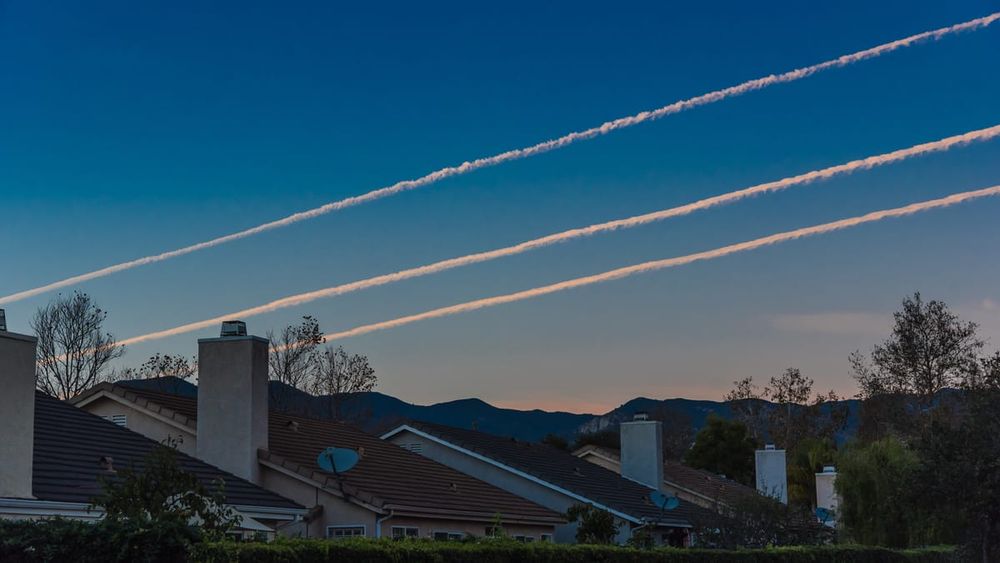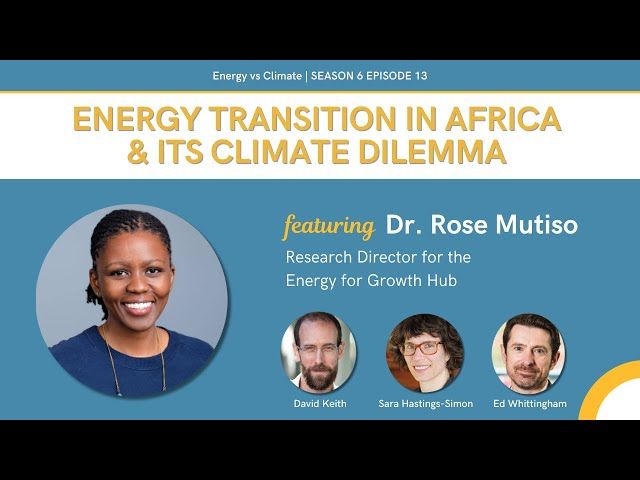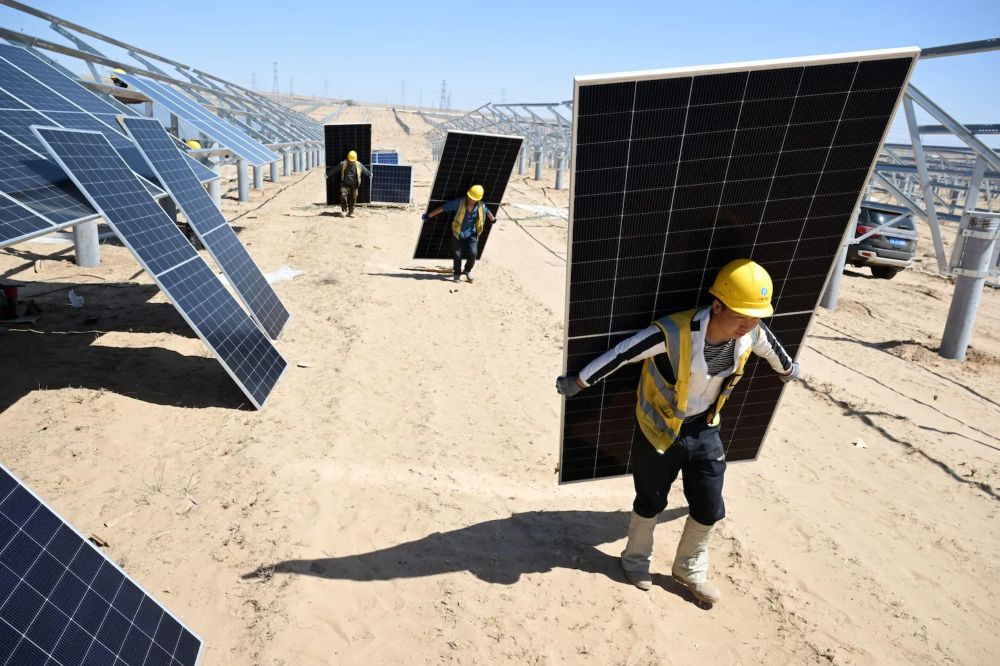
Enjoyed my conversation on SRM360's webinar/pod yesterday. Check it out here:
05.12.2025 17:36 — 👍 2 🔁 2 💬 0 📌 0@davidkeith.bsky.social
Climate science and technology policy since 1989. Building Climate Systems Engineering at UChicago. Founded Carbon Engineering. Work interferes with my climbing. Read about me and my work at https://davidkeith.earth/

Enjoyed my conversation on SRM360's webinar/pod yesterday. Check it out here:
05.12.2025 17:36 — 👍 2 🔁 2 💬 0 📌 0
Daniele Visioni and I explain our concerns about Stardust and the commercialization of climate engineering in Technology Review:
04.11.2025 14:54 — 👍 27 🔁 5 💬 0 📌 0We did approve the first headline, but we did not approve this one...
22.09.2025 19:10 — 👍 1 🔁 0 💬 0 📌 0Notice how much Ray leans on ad hominem arguments. Calling me a charlatan. So what. It's not about me or Ray.
People typically resort to ad hominem attacks when their factual and ethical arguments are weak.
Ray: you should do better.
Zeke's sweet thread on our op-ed:
21.09.2025 17:20 — 👍 6 🔁 1 💬 0 📌 0
One can imagine this rule is simple enough to be useful in international negotiations over sunlight reflection.
My prior NYT op-ed's on this topic: davidkeith.earth/the..., and www.nytimes.com/2008...
4/4
First, it ties use of SRM to clean up of pollution, and since this pollution is mostly from burning fossil fuels, this is roughly equivalent to tying use of SRM to cuts in fossil fuels; and second, it provides a non-arbitrary fixed upper limit on how much SRM can be deployed.
3/4
Zeke and I propose a simple rule: limit use of SRM to maintaining Earth’s reflectivity against the decrease in reflectivity that will continue as pollution is cleaned up.
This rule has two useful consequences.
2/4

Zeke Hausfather and I have an NYT op-ed out today, www.nytimes.com/2025...
Here's my short blog post on the topic: davidkeith.earth/pre...
1/4
I am particularly excited about research that explores the risks and uncertainties of hemispherically balanced deployment of stratospheric sulfates, which add cooling at no more than 0.1 degrees per decade for half a century.
22.07.2025 16:48 — 👍 2 🔁 0 💬 0 📌 0Research on sunlight reflection is often driven by large or badly managed deployments.
Ken Caldeira, Cael, and I invite submissions for an AGU session assessing potential harms from limited deployment. agu.confex.com/agu/agu25/pr...

And Holly Buck is a powerful writer on geoengineering. See her book "After Geoengineering." Also, her article "The Rise of Green MAGA" is essential reading for the current political environment: www.compactmag.com/a...
Here's Holly on our pod: www.energyvsclimate....

Rose Mutiso is a great rising voice in the climate and energy space, and I recently spoke with her about the energy transition in Africa on my Energy vs Climate podcast: youtu.be/DjOcyXPxaoc...
Rose's Ted Talk on the subject is also a must watch: youtu.be/77HUdJ7Tij0...
The conversation focused on SRM in context, alongside carbon removal, adaptation, and emissions cuts. We need to evaluate how they might work together in our messy world, a topic that's on my mind every day as I write a book that tackles this question.

Enjoyed my time in Cape Town last month for the Degrees Forum 2025. I had the pleasure of joining @hollyjeanbuck.bsky.social and Rose Mutiso for a plenary session on how sunlight reflection methods (SRM) fit into the broader climate response toolbox. #DGF2025 youtu.be/jlUQl6YjIjc...
18.06.2025 14:15 — 👍 1 🔁 0 💬 1 📌 0
Canada can’t just sit on the sidelines regarding SRM research and governance. Ignoring SRM means others will make the decisions. Here’s an old op-ed Ted Parson and I wrote for the Globe & Mail that makes this point:
davidkeith.earth/the... (not our headline)

Lisa Dilling leads SRM research at the Environmental Defense Fund and has written about the need to explore the potential impacts of SRM before any sort of deployment is considered:
blogs.edf.org/climat...
This conversation grew out of meetings that several Canadian SRM leaders, including Ted Parson and Doug MacMartin, had with Canadian government officials and NGOs about a possible SRM research program in Canada.
04.06.2025 14:06 — 👍 2 🔁 0 💬 1 📌 0
Can Canada afford to ignore sunlight reflection methods (SRM)? I'm joining @ldilling.bsky.social from the @envdefensefund.bsky.social for a discussion hosted by the Transition Accelerator, a major Canadian NGO focused on the climate. June 10, 12pm ET.
Join the Live Q&A: transitionaccelerato...

Superb op-ed from Steven Pinker (@sapinker on X) calling out the right's absurd Harvard Derangement Syndrome.
Harvard has some woke, but its peak has passed, and claims of many on the right are disconnected from the reality I saw as a faculty member.
www.nytimes.com/2025...

I appreciate the way Andreas has made a careful case for strong actions such as civil disobedience to protect humans and nature. Looking fwd having Andreas join us on Energy vs Climate this morning. (Feel free to join us live)
www.energyvsclimate....
See, the concluding section of the article, "If not a negotiated moratorium, then what?” for practical thinking on how governance can move forward without halting research progress.
22.05.2025 15:57 — 👍 1 🔁 0 💬 0 📌 0States can begin research programs while making it clear that deployment is premature. This allows for bottom-up norm setting and transparency without the risks of a negotiated moratorium.
22.05.2025 15:57 — 👍 1 🔁 0 💬 1 📌 0Many people, including (sometimes) me, have argued that a moratorium could provide a safe space under which research can flourish. But a moratorium would not magically create research. And as Sue and Dan point out, there are many ways in which a moratorium might inhibit research.
22.05.2025 15:56 — 👍 1 🔁 0 💬 1 📌 0
Smart argument against a moratorium for deployment of sunlight reflection SRM from Sue Biniaz (former top US climate negotiator) and @bodansk.bsky.social (environmental lawyer).
www.justsecurity.org...

New high-quality survey on public attitudes toward sunlight reflection in Great Britain:
16% support SAI deployment.
46% are unsure.
Younger people are more supportive overall.
Interesting signals on awareness and openness to geoengineering in general.
yougov.co.uk/health/...
What's your basis for confidence that the modelers are wrong?
Economic or energy forecast half a century in the future are near meaningless, but near term forecasts have predictive power.
Of course, it's a long way to zero, but an emissions peak is not insignificant.
Will Trump inadvertently increase the chance of a 2025 peak by slowing the economy?
20.05.2025 14:25 — 👍 0 🔁 0 💬 1 📌 0That is a nice plot, I missed this in the annual report. Helpful.
20.05.2025 14:24 — 👍 0 🔁 0 💬 0 📌 0
Thanks, Glen -- I give a **lot** of weight to your analysis.
Agreed that we will not know when the peak happens until a few years after it's passed.
What do you make of the new @carbonbrief.org analysis showing a China decline?
www.carbonbrief.org/analysis-cle...